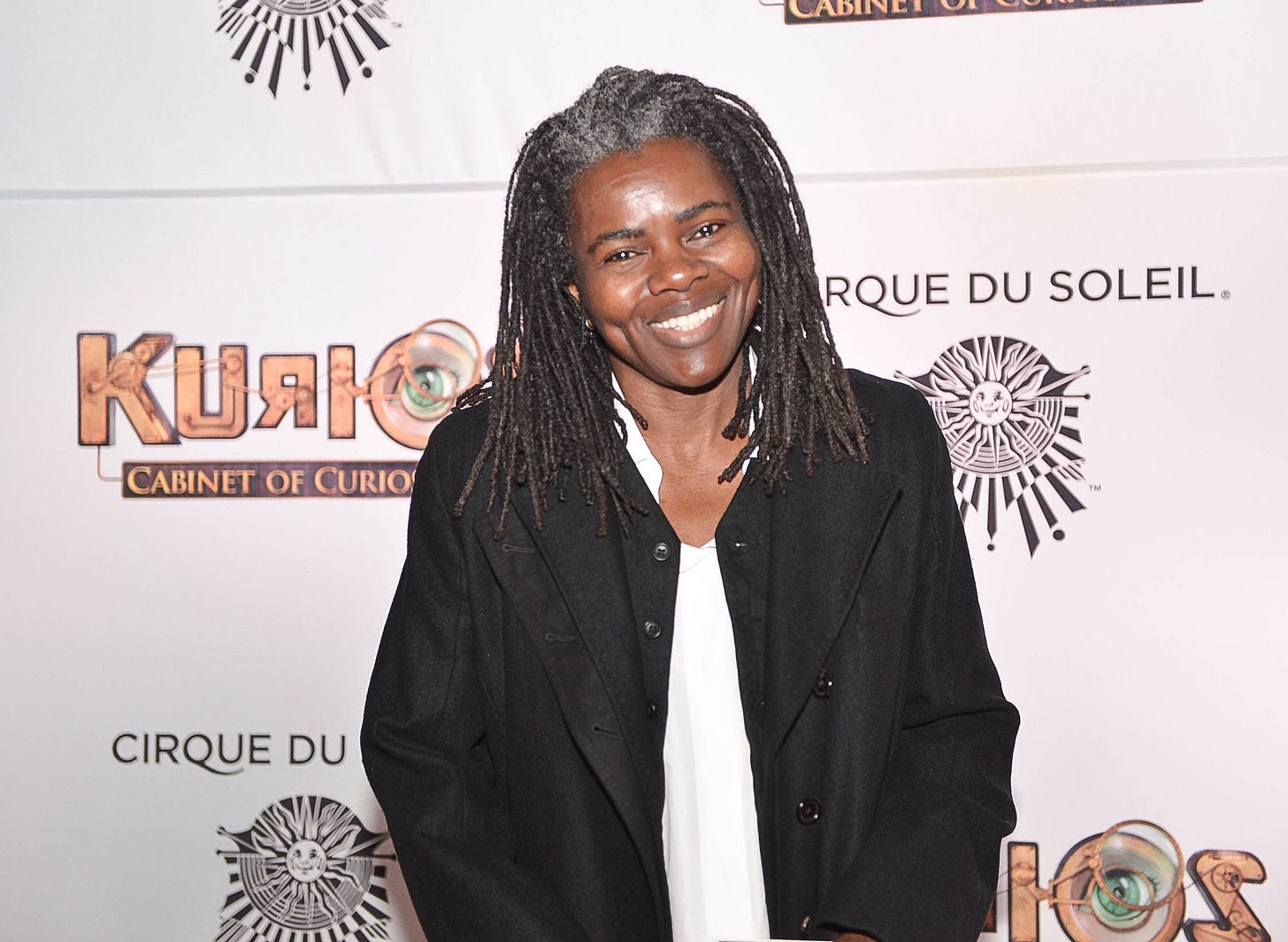THIRTY-FIVE YEARS OF TRACY CHAPMAN
Her glorious self-titled debut album was re issued last week
The re release of Tracy Chapman’s debut album on vinyl is a cause for celebration. I may still have my copy somewhere in my basement, but I’m gonna buy a copy of the new one out of respect for its staying power and her artistry. I wrote a piece about her after her luminous Grammy performance that I’m reprinting here, since it sums up my feelings about her music and meeting her some thirty-five years ago.
Update: The day after I posted this Chapman’s 1988 debut was inducted into the National Registry of recordings by the Library of Congress!
I was an editor at Billboard in 1988 when Tracy Chapman's debut album was released. I was knocked out by her songwriting and voice. Poetic, keenly observed portraits of working class life in America sung with a clear, emotional tone that stood outside the box most black musicians of the era worked in. It wasn't just "Fast Car" that impressed me. "Baby Can I Hold You Tonight," a great love song, "She's Got Her Ticket" and "Talkin' Bout A Revolution" wore out my turntable. So I wrote about her at Billboard, did a big review in the Village Voice (titled Today's Black Woman, a play on Essence magazine's tag line) and actually did a short profile of her for Essence. I fondly recall interviewing her at Elektra's NYC office. Very smart and quite shy, Tracy had a brilliant smile that was such a contrast with her unsparing lyrics.
I couldn’t run down my Village Voice or Essence piece, but this interview I gave back in ‘88 captures my feelings about her: ''Tracy Chapman is the most important artist of this year and may end up being one of the most important artists of the next 10 years. Her record, to me, testifies to the fact that American radio and audiences are not as calcified as you would think. There's a quality to her songwriting and her voice that is remarkable. And any record such as ''Fast Car'' that's both a good song, objectively as music, that also talks about some of the problems in America is a positive thing.''
But her musical approach (and her hair) were subjects of ridicule for many in the black music community. At an black music conference in Atlanta that year an female R&B singer got a lot of laughs from the stage, joking about Chapman's music and "messed up hair." The singer (who will not be named) was, of course, wearing a glittery dress and a mountain of fake curls. So it's nice to see the universal love Tracy's Grammy appearance has generated. Luke Combs deserves a lot of credit. How many white men in country are a covering decades old song by a black lesbian? Just him. Without that bold successful choice, Tracy isn't coaxed out to perform and we don't have the cross generational, cross genre and racially unifying the culture needed (and needs more of.) Billboard magazine estimated that the publishing income generated by Combs’ cover had reached $500,00 and that was BEFORE the Grammy performance drove the song, and her debut album, back up the charts.
Plus everyone got to see her smile.





